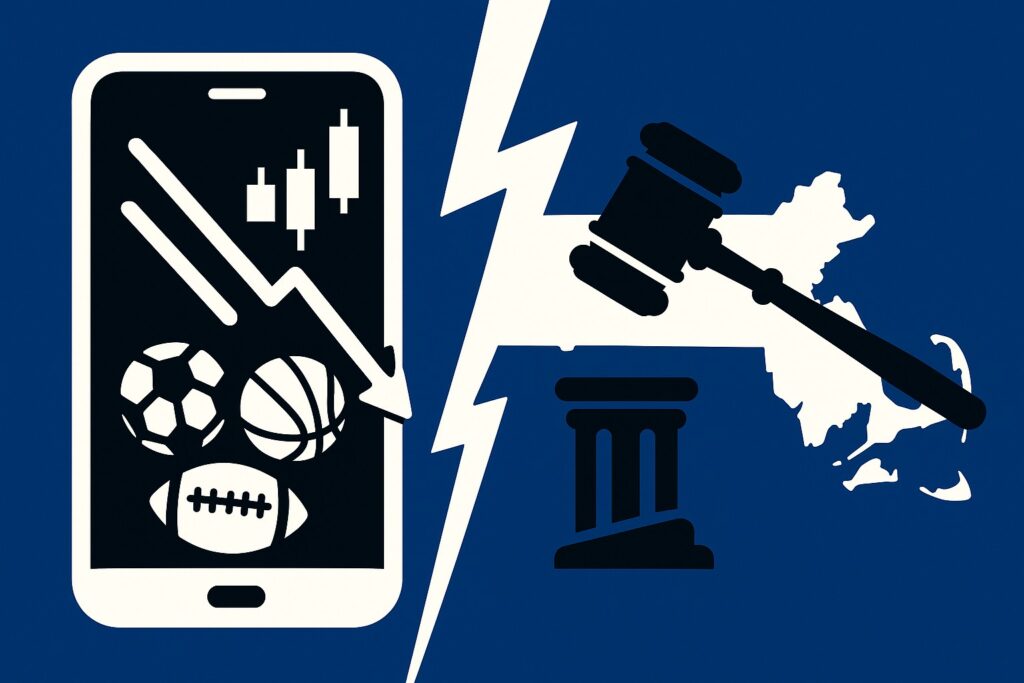A joint committee of the Massachusetts state legislature heard familiar arguments for and against iGaming on Monday, as identical bills to legalize online casinos are under consideration in the House of Representatives and Senate.
DraftKings’ Government Affairs Manager David Prestwood, FanDuel Government Relations Director James Hartmann, gaming lobbyist John Pappas, and Zach Kahn for the Sports Betting Alliance testified in favor of the legislation.
Jamie McNeil from the Local 26 labor union representing hospitality workers, Mark Stewart from the National Association Against iGaming, and national problem gambling expert Brianne Doura-Schawohl voiced opposition to the Joint Committee on Consumer Protection and Professional Licensure.
Jobs + tax revenue
DraftKings’ Prestwood opened with two points that are music to the ears of state lawmakers: the creation of new jobs and increased tax revenue.
Both points were disputed in opposition testimony moments later.
Reminding the joint committee that Boston-based DraftKings employs around 1,200 people in Massachusetts, Prestwood said the company is “looking forward to growing even more” in the state should iGaming be legalized.
He added that, per conservative estimates based on the proposed 20% tax rate, online casinos could generate $230-275 million in new annual revenue for the Commonwealth within the first few years of launch.
“Massachusetts, with its large population and already strong sports betting and lottery market, has the potential to outperform early benchmarks set by [existing iGaming markets, like New Jersey, Pennsylvania, Michigan and Connecticut],” Prestwood proclaimed.
Does legal online gambling actually hurt the labor market?
Countering the proponents’ point about job creation, Jamie McNeil from Local 26 – a union that represents about 12,000 hospitality workers, including 1,200 at Encore Casino in Boston – said legal iGaming has an adverse effect on the labor market.
“By our estimates, Massachusetts could lose 862 gaming jobs and an additional 2,786 supporting jobs,” he proclaimed.
“Our estimates are derived from a 2025 Innovation Group study that found between 2019 and 2024, states with iGaming had a 4% decline in brick-and-mortar casinos, and states without iGaming had a 12% increase in their casinos. We applied the 16% loss to our current workforce here in Massachusetts.”
Data presented by McNeil shows that over 5,000 jobs were lost in Atlantic City, a 17% decline, as iGaming revenue grew 395% from 2019 to 2024. More than 1,000 union jobs were lost in Detroit since iGaming was approved in Michigan, a 38% decline.
The study found that without iGaming, brick-and-mortar casinos would have brought in additional revenues of $374 million to New Jersey and $787 million to Michigan in 2024.
Pappas and Kahn disagreed with McNeil’s larger point.
“iGaming has been shown to boost local land-based casino revenue and jobs,” Khan said. “On average, they see a boost of 2% to annual land-based casino growth rates after the introduction of iGaming.”
More skins, please
While S235 (sponsored by Sen. Paul R. Feeney) and H332 (Rep. Daniel Cahill) would both allow the state’s three casinos to partner with two operators each and for Massachusetts to license two additional untethered operators, the industry is pushing for broader market access.
“We’d love to see stronger competitive options within the bill,” Pappas said.
More specifically, Pappas asked for three skins per casino and an increase in the number of untethered licenses, since Massachusetts could support at least 15-20 iGaming operators.
Rep. David LeBouef requested more information regarding revenue data around land-based casinos and Massachusetts’ ability to support so many operators.
Take if off the black market
Prestwood was joined by Hartmann and Pappas in the refrain that “internet casino gambling is already happening in [state x], but it’s being done on illegal sites.”
Said Hartman, “Any Massachusetts resident can go on their phone and download a real-money mobile casino and be playing in five minutes, and they’re doing that to the tune of $7 billion per year in wagers.”
Stewart and Doura-Schawohl, of course, stressed underage and addictive issues related to the gambling expansion.
Prestwood urged the legislators, “Massachusetts has the opportunity to lead on this issue by enacting smart, well-regulated and reasonably taxed iGaming legislation.”





